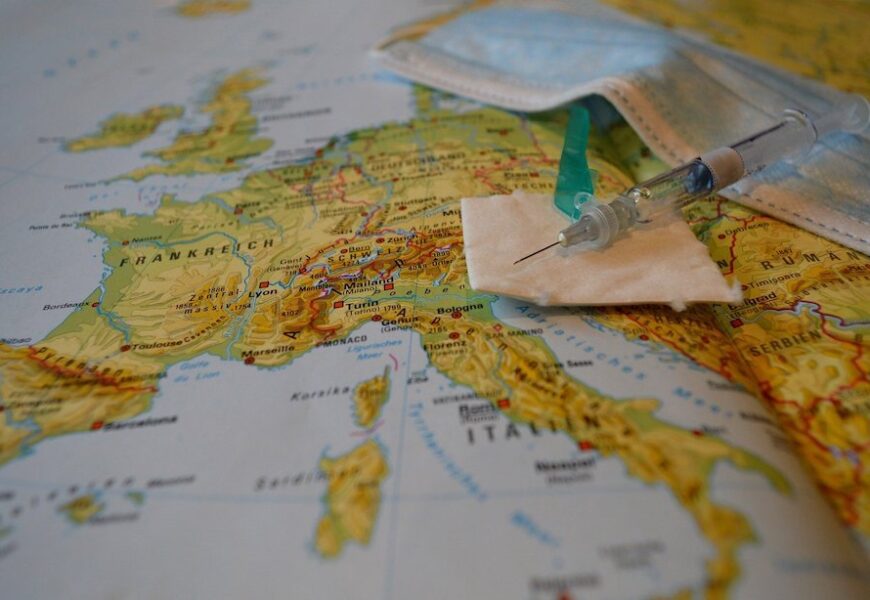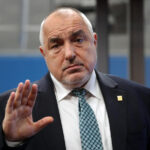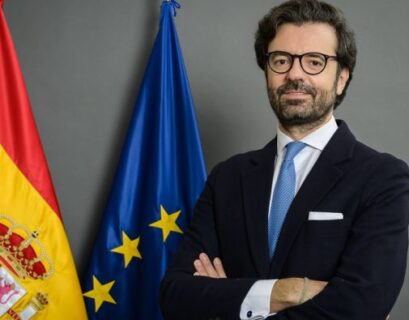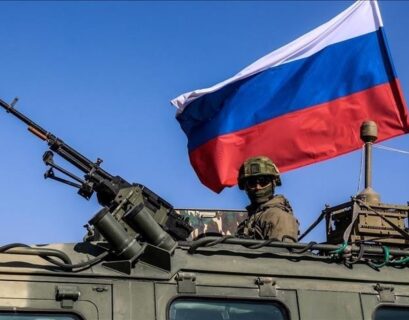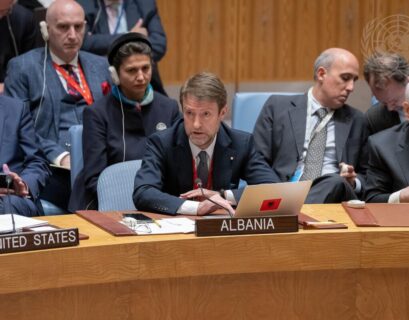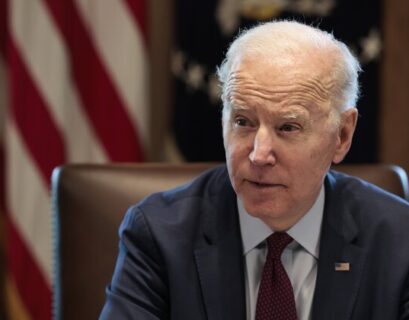Veton Surroi
The line dividing Kosovo and Serbia now also marks the boundary between a country without any vaccines and a country becoming a leader in vaccination: an illustration of the geopolitical challenges of COVID-19.
A Bulgarian friend had published some statistics on COVID-19 vaccination in Europe. The United Kingdom stood on the top of the list. Moving at the current vaccination pace, the UK will reach herd immunity (meaning 70 percent of the population has received a vaccine) this August. Bulgaria was at the bottom of that list. Continuing at its current vaccination rate, it will reach herd immunity (meaning 70 percent of the population has received a vaccine) in 2040. Bulgarians can cry and laugh at the same time. Of course, compared to the British, they face a lamentable reality.
Yet, when compared to the Albanians, the Bulgarians should be happy. In Albania, the news of the day was the vaccination of about two hundred health workers, a number that will increase by tens or hundreds, but not dramatically in the coming days.
In Kosovo, there is no news about the vaccine; there are elections, and in elections the vaccine is on the list of electoral promises, along with asphalt, jobs and everything else that needs to be done to turn the country into Switzerland. For Albanians, the Bulgarians’ 2040 looks like it’s not too far out. And that’s the only good news for Bulgarians.
The bad news for Bulgarians and everyone else on the planet is that in the first month since the vaccines gained official approval, according to the Council on Foreign Relations (CFR) in New York, fifty million vaccines have been delivered, far below the number that is needed by the world’s eight billion people. It’s an illustration of a simple conclusion: there is no global solution to the global crisis presented by the pandemic.
That bad news is already a small but important part of a collective perception – which has the potential to quickly turn into an analytical conclusion – that, despite the best hopes and efforts, the COVID-19 crisis will continue in 2021, maybe the entire year, and there is even a good chance that some of it will be carried over to 2022. Thus, it would resemble the Spanish Flu, which began in 1918 and ended as a pandemic in 1920.
This conclusion is valid for every country on its own as well as the world as a whole. Faced with the next wave of infections, each country will have to calculate how to minimize the health, economic and social costs as it imposes restrictions on physical communications. For strong states like Germany, it could manifest itself with lockdowns until Easter. For weak states like Albania and Kosovo, it means that those who will be in power following the upcoming elections will have to face the reality of the impact of the COVID crisis which is attacking Albanians in a situation of poverty and institutional fragility even more so than other European peoples. They will thus have to explain to the population that the pandemic will last until the end of the year.
But this heavy burden does not fall solely on the poor nations like Albanians in Europe or others in Africa, Asia and Latin America. According to a study by the NBER (National Bureau of Economic Research) in the United States, even if all rich countries are vaccinated this year, 49 percent of the cost of declining world production this year will be born by the rich world. The rest will fall on the backs of poor nations, in terms of loss of income, lives and damaged institutions.
The anti-COVID vaccine roll-out is today an important cornerstone for measuring the performance of states. Two countries that today lead the world in vaccination efforts are in the Middle East. Israel has already vaccinated 44.9 out of 100 people, while the United Arab Emirates 26 out of 100. Both countries have almost the same population of nine million and there are some differences in political stability, democratic standing, etc. But both are countries with a centralized public health system and high IT capacity.
Both aim to achieve herd immunity, possibly, in March and thus achieve not only being number one globally, but also show the highest indicators of collective health, which today has become the measure of the efficiency of the state. It is not a coincidence that Israel and the UAE are ahead. It also has to do with geopolitics. Israel is a technologically, scientifically and militarily advanced state, which has been built and is being built in friction or conflict with almost all of its neighbors. Emerging as the first country with vaccine-acquired immunity shows the state’s organizational strength and the vitality of the society. The UAE is a transformative economics, urban and logistical miracle not only among the Arabs, but globally.
Coming to the top of the list shows not only the strength of this state, but also its recognition as an important geopolitical focal-point: the country’s warehouses can be used to distribute vaccines and medical equipment in all directions — east and west, north and south.
Kosovo and Serbia also suddenly found themselves in this race for the prestige of efficiency and geopolitics. In January, Serbia managed to climb to the world’s top ten in terms of the number of residents vaccinated, while at the European level it is in fourth place, below just Great Britain, Malta and Iceland. Kosovo does not even qualify for the competition yet – it has not received any vaccines, even throughout the usual channel – through donations.
The difference between the two countries — in organization, in systems and democracy — can be easily measured by the statements of their two leaders. On other issues, as well as on the issue of COVID vaccines in Serbia, the president of the country is the one serving as spokesperson, although healthcare is not his area of expertise. And he explains exactly how many vaccines were bought, when and how they arrived, how many people were vaccinated, in which municipalities and which vaccine they preferred — Pfizer, Sputnik-V or Sinovac (from China).
From the position of the head of a completely centralized system, it would not be a surprise that the statements from the President of Serbia could also provide the ID number and date of birth of each vaccinated person. On the other side, there are the statements of the Prime Minister of Kosovo, who speaks about vaccines with the concreteness of the pre-election promises, in a similar way to a foggy economic program for the next six years, during which period he promises that seven billion euros will be invested. When asked how many vaccines have been ordered, he says he does not know exactly, but says that “we have allocated forty million euros for vaccines.” When asked when they will come, he says in March, and when asked once again, he says “yes, yes, they will start coming in March.” In a political life where one scandal covers the one from the previous day, it is also forgotten that some vaccines “from Austria” have been ordered, but they have not yet received approval for use.
Serbia as a leader in Europe? The Serbian president wants that to be the message that permeates, and he undoubtedly deserves merit for the work and determination invested, making him the head of a state that does not even have a parliamentary opposition. But the message is wrong if one does not take into account a major strategic move by an external power – the country where the pandemic began and from where vaccines now arrive — China.
Serbia has bought, at a preferential price, one million doses of the Sinovac vaccine, which were immediately distributed through its well-functioning healthcare system.
Chinese vaccines, along with the Pfizer and Sputnik-V vaccines, which Serbia rushed to be among the first countries to buy, have made Serbia one of the leading European countries in terms of vaccination. And this was China’s obvious diplomatic goal, to show that it can tilt the global political scale toward itself.
China has identified several other countries of geopolitical importance where it will send its vaccine. Egypt is one of the countries that along with the Chinese vaccine will take a political initiative to get closer to the Chinese sphere of economic and political influence. The same can happen in Ukraine, where China, with its vaccines, can tell Russia, the EU and the United States that it can penetrate into a geopolitical friction space where until yesterday it was absent. The ball is already in the court of the West, in that world where Albanians are supposed to belong.
The challenge posed to the West is to prove that it will vaccinate the whole part of the world where it claims to be politically influential. The dividing line of that claimed world with the rest today is the one dividing Kosovo and Serbia, where one claims the West and is left without a vaccine and the other which is sought out by the West, Russia and China becomes a leader in vaccination: that’s the geopolitical challenge.


